Personality Type Three
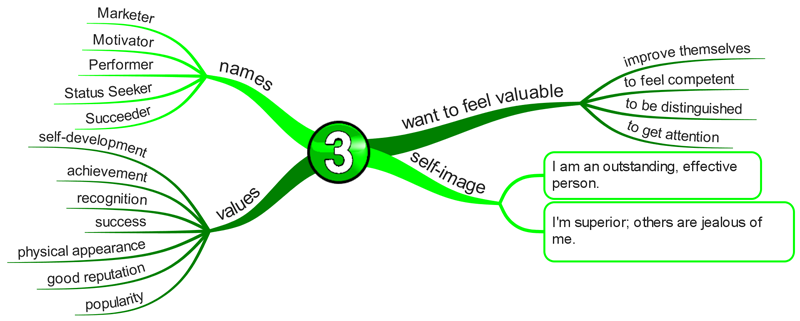
Overview
Threes like to see themselves as outstanding and effective people. They want to feel worthwhile, accepted and desirable. They focus on being competent, productive and seek to be outstanding, hoping that they will be appreciated and admired for embodying the values of their community.
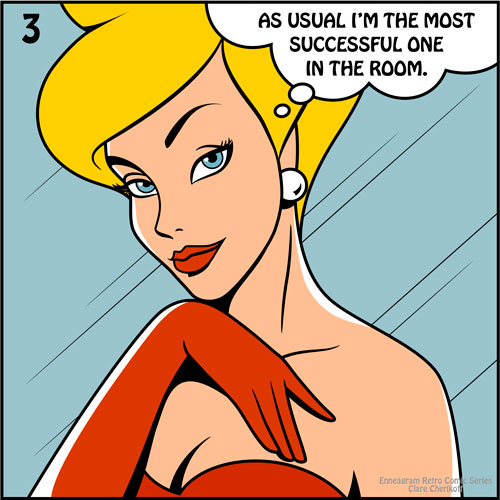
Threes set aside their personal feelings because they get in the way of their efficient productivity and in presenting a favourable impression to others. Their emotional distance helps insulate them from underlying feelings of shame.

The attention that Threes seek is really an affirmation and validation of who they are. Threes want to feel worthwhile and valuable as people and need others to help them feel that way. Threes from different societies or families can look very different, because they are striving to attain different values and meet different expectations. However, all Threes share a drive to excel, and in so doing, to feel important.

Threes are extremely adaptable. Threes are acutely aware of the expectations and values of their family, their friends, and their community. They adapt their self-image to achieve those values and meet those expectations. Feedback from others helps them refine their image. As a result, Threes are like chameleons, always changing their presentation to be favourable to people. However, by constantly altering their identity, it is hard to know who they really are.
Average
Average Threes see themselves as the winner: they are focused on their accomplishments and their performance. They are pragmatic and efficient and actively pursue what they want. Threes have a strong drive to excel and to push themselves. Their emphasis on success carries with it a fear of failure. As a result, Threes compare themselves to others and compete with them openly.

Average Threes package and market themselves to be agreeable to others. They are image conscious and somewhat superficial. Average Threes may brag and exaggerate their accomplishments to solicit attention. Their embellished stories about themselves begin to stretch the truth. Deceit is sometimes necessary to obtain the attention they want. Despite the cool and smooth presentation, others begin to perceive a phoniness and may be put off by the self-promotion and the facade. Average Threes truly believe feel they are superior and that others are merely jealous. However, they cannot risk alienating the people from whom they demand attention.

If average Threes don't get the amount of attention they crave, they begin to promote themselves even more. As if demanding "Look at me!" they inflate their talents and accomplishments. Their grandiose notions become narcissistic and they have a hard time talking about anything other than themselves. They become arrogant and feel a superior contempt for others.
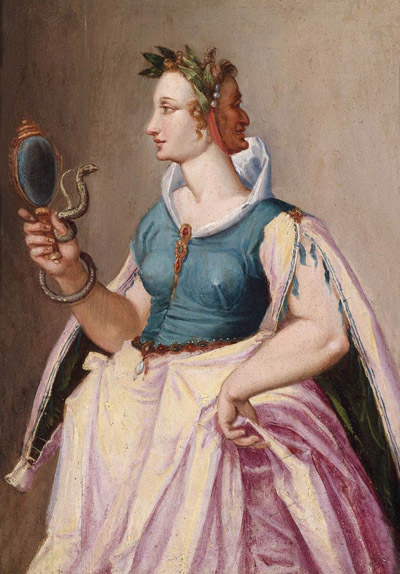
At their Worst
Unhealthy Threes will do whatever it takes to win. They can be deceptive and exploit others, stepping on others to stay on top and often destroying those who stand in the way.

What leads Threes down the wrong path is their belief that their value as people comes from their accomplishments and success. This dependence drives them to achieve at the cost of authenticity and honesty.

At their Best
Healthy Threes let go of the value they have forced upon themselves. Threes are ambitions to improve themselves, but do so without competition. They are highly effective and capable at most things they do. Others naturally admire Threes for their genuinely amazing accomplishments, and others seek ways to perform as well as Threes.

Healthy Threes are confident in themselves. They are outstanding exemplars in their communities. Threes believe that they can still achieve despite the occasional failure. They have a self-assured attitude that is charming and poised.

At their best, Threes let go of the belief that their value is dependent on the positive attention of others. Very healthy Threes adopt a modest and charitable attitude. They believe that everything has inherent value, including themselves. Everything is worthy of our attention and esteem. Very healthy Threes realize that they have value and authenticity through their very existence.

Analysis
Every personality type is "powered" by a different motivation. When "worn lightly," this motivation guides our behaviour through general tendencies and attachments. As this motivation becomes stronger, it becomes increasingly important to see ourselves in a certain way and to ensure that others see us that way, too. To accomplish this goal, we emphasize certain behaviours (and disown others) by playing a role. Sometimes we need to manipulate others or even undermine them to force them to see us as we want to be seen. Unfortunately, the more attached we become to our self-image, the less we see ourselves as we really are.
 |
Motivation
To be valuable and desirable |

 |
Attachment
Become attached to values of self-development, attractiveness, and desirability
Self-Image: “I am an outstanding, effective person.”
Reject their own feelings |

 |
Self-Esteem
Feel good about themselves when they have accomplished something worthwhile.
Relate to others primarily by self-improving, ambitious. |

 |
Role
Proves self-image through playing the role of the Winner.
Tend to compete for status and attention |

 |
Manipulation
Manipulates others by adapting their image to meet their expectations and to appear to excel at things valued by others.
Shadow Issue of Deceit arises when Threes exaggerate and bend the truth in order to make themselves appear better than they are. |

 |
Overcompensation
Undermine others by treating them arrogantly or with contempt, making them feel worthless. |
Similarities with other Types
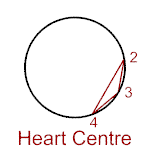
Threes seek attention (like Twos and Fours)
Read More
|
|
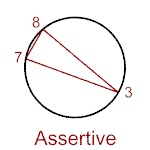
Threes are assertive in going after what they want (like Sevens and Eights)
Read More
|
| |
|
|
|
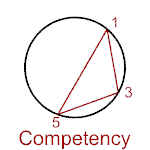
Threes handle problems with a competency approach (like Ones and Fives)
Read More
|
|
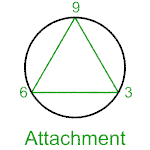
Threes are attached to the expectations of others (like Sixes and Nines)
Read More
|
Interviews with Threes























